Uzbekistan pushes for equal economic opportunities for landlocked nations
The President of Uzbekistan proposed several key initiatives to address the common challenges and threats faced by landlocked developing countries.
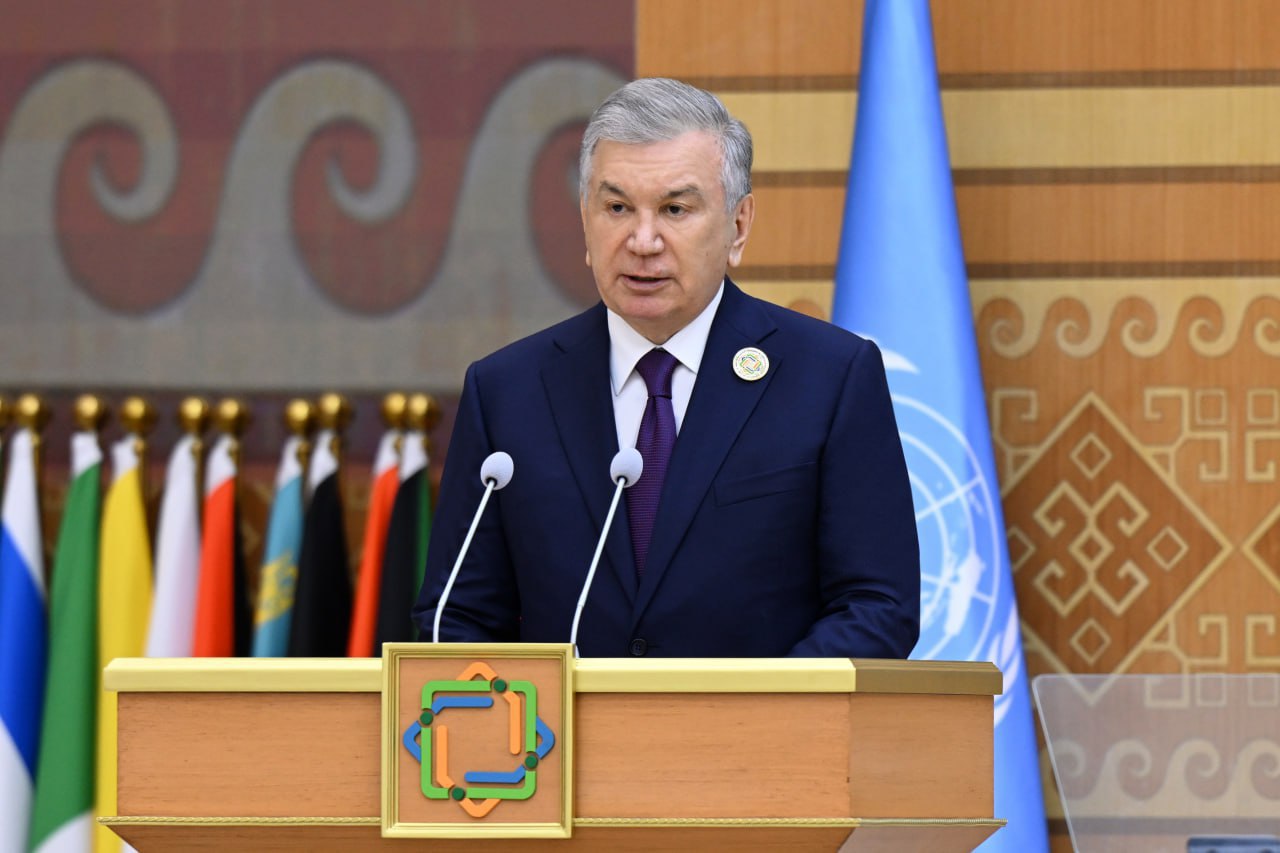
Photo: Presidential Press Service
On August 5, President Shavkat Mirziyoyev participated in the Third United Nations Conference on Landlocked Developing Countries, held in the “Avaza” National Tourism Zone in Turkmenbashi, Turkmenistan.
The event, chaired by President Serdar Berdimuhamedov of Turkmenistan, was attended by UN Secretary-General António Guterres, President Kassym-Jomart Tokayev of Kazakhstan, President Emomali Rahmon of Tajikistan, as well as leaders of other states, governments, and international and regional organizations.
The agenda included critical issues such as strengthening transport connectivity, simplifying trade procedures, transforming economies, enhancing resilience to climate change and environmental threats, and achieving Sustainable Development Goals.
At the outset of his speech, President Mirziyoyev highly praised Turkmenistan’s efforts toward achieving Sustainable Development Goals, ensuring global and regional stability, and promoting prosperity.
He emphasized the vital importance of the issues discussed at the conference, noting that geographical distance from seaports and the need to transit through multiple countries create significant objective challenges.
These challenges include high tariffs, limited transport corridors and infrastructure, and dependence on the customs and transit policies of other countries.
According to World Bank data, Central Asia loses up to 2% of its GDP annually due to high transport costs and unstable transit systems.
Logistics costs account for up to 60% of the value of goods, several times higher than the global average.
In this context, developing reliable new transit corridors and logistics infrastructure is becoming a critical condition for sustainable development in Central Asia.
“Today, our shared agenda addresses a fundamental issue – a matter of justice,” said the Uzbek leader. “It is about ensuring equal opportunities for landlocked countries to participate in the global economy.”
To address this pressing issue, three key conditions must be met: modernizing infrastructure as a foundation for sustainable development, strengthening connectivity to prevent transit issues, and ensuring the right to development as a core element of global equality.
In recent years, Uzbekistan has taken systematic steps to develop a modern transport and logistics network, actively involving the private sector. Significant efforts have been made to digitize trade and transport processes.
Structural economic reforms, trade liberalization, and substantial improvements in the investment climate have yielded notable results: increased competitiveness and accelerated innovative development.
“The new level of mutual trust and partnership in Central Asia is providing a strong impetus for rapid changes,” the President noted.
A unified transport and logistics space is being formed in the region. Programs and projects are being implemented to transform Central Asia into a full-fledged transit hub connecting East and West, North and South.
Over recent years, trade turnover has increased 4.5 times, investments have doubled, and the number of joint ventures has grown fivefold.
This year, construction began on the “China – Kyrgyzstan – Uzbekistan” railway, and cargo transport volumes through the “Uzbekistan – Turkmenistan – Iran – Turkey” corridor have significantly increased.
To address the common challenges faced by landlocked countries, the President of Uzbekistan proposed several specific initiatives.
First, he emphasized the need for coordinated actions to rapidly develop international transport corridors and infrastructure.
In this regard, accelerating the construction of the “Uzbekistan – Afghanistan – Pakistan” railway and integrating it with the “China – Kyrgyzstan – Uzbekistan” railway was highlighted as crucial.
“This will open significant opportunities for creating a new trade and economic space and stable transport infrastructure in our vast region,” said the Uzbek leader.
He called for fully leveraging the potential of the Trans-Caspian International Transport Route by adopting a coordinated transit policy, unifying regulations, and introducing competitive tariffs for container transport.
The President also proposed developing a Global Agreement on Transit Guarantees for landlocked countries under the UN’s auspices. This agreement would ensure fair access to ports and communications, reduce risks in cargo transport, and address inequalities in global logistics.
Considering the growing demand for flexible investment tools to finance large-scale infrastructure projects, he put forward an initiative to establish a Fund for Supporting Logistics Integration of Landlocked Countries under the UN. The transport infrastructure needs of Central Asian countries are estimated at nearly $40 billion annually.
Additionally, the Uzbek leader proposed creating a Global Vulnerability Index for Landlocked Countries to objectively assess transit limitations, expand international financial and technical programs, and efficiently allocate resources based on real conditions.
He also highlighted the importance of establishing an Innovation Hub for agricultural development in Uzbekistan to promote adaptive agrotechnologies, water conservation, and food security, as well as to facilitate knowledge and experience exchange.
President Mirziyoyev stressed the need to actively involve leading experts and think tanks in developing solutions to overcome common challenges, including through international conferences and roundtable discussions.
“Such events could address issues like deeper integration of our countries into global production chains, rapid development of artificial intelligence and digital technologies, expansion of cross-border investments, and support for startups,” he said.
Uzbekistan also expressed its intent to join the activities of the International Analytical Center for Landlocked Countries.
In conclusion, the President reaffirmed Uzbekistan’s readiness for constructive and long-term partnerships to shape a fairer architecture for global development.
The conference concluded with the adoption of the Avaza Political Declaration.
Related News
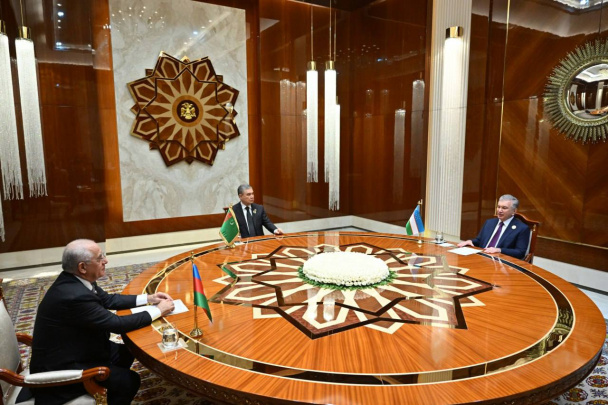
20:06
Uzbekistan, Turkmenistan, and Azerbaijan hold trilateral meeting to discuss regional cooperation
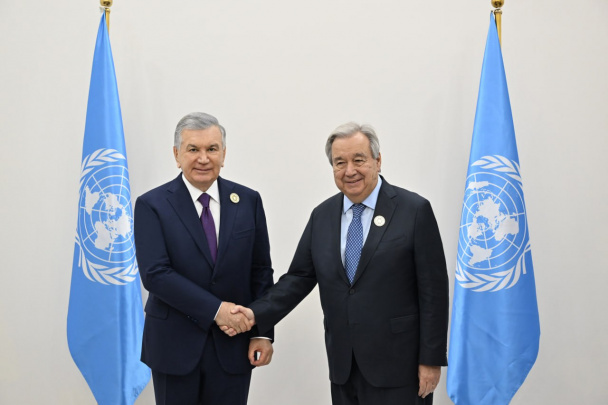
17:38
Uzbekistan reaffirms support for UN reform and global peace efforts
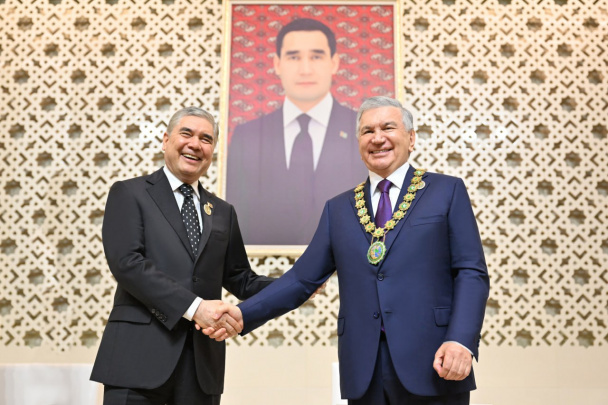
16:20
President of Uzbekistan honored with high state award from Turkmenistan
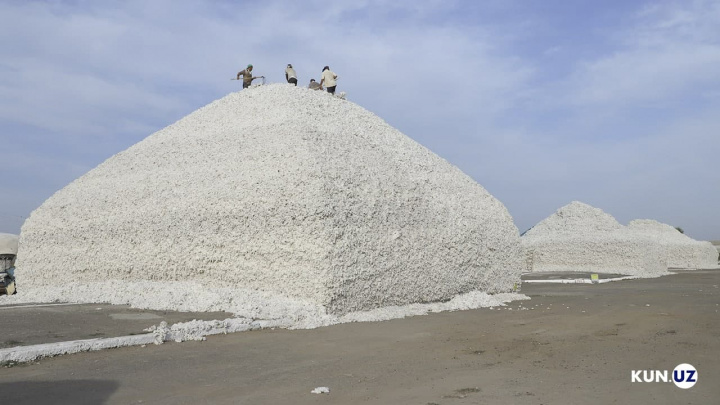
18:16 / 04.08.2025



